Last updated: October 2025
Pay stubs—“payslips” in the UK and “wage statements” in Canada—summarize each pay period’s earnings and all withholdings. They are commonly used as proof of income for rentals, auto loans, and visas. Employers must issue accurate, legible statements; for example, UK payslips must show pay before and after deductions and, when pay varies, the hours worked:. Canadian wage statements show gross pay, mandatory deductions (income tax, EI, CPP), and net pay:.
Searching for the best pay stub generator usually means you are either issuing compliant documents as an employer or compiling proof of income as an applicant. Modern tools can calculate wages and withholdings, but they do not replace legal duties. Professional document editors can package and format stubs to meet submission rules without changing amounts. This guide explains the legal basics, permitted and prohibited edits, when to use professional help, and how FinancialDocsProvider.com supports a compliance‑first approach.
Related Entities & Terms
- Documents & Forms: pay stub / pay slip, bank statement, W‑2, 1099‑NEC/1099‑K (US), T4/T4A (Canada), P60/P45/SA302 (UK), Notice of Assessment (NOA), proof‑of‑income letter.
- Regulators & Agencies: Consumer Financial Protection Bureau (CFPB), Federal Trade Commission (FTC), Internal Revenue Service (IRS); Financial Conduct Authority (FCA) & HM Revenue & Customs (HMRC) in the UK; Financial Consumer Agency of Canada (FCAC) & Canada Revenue Agency (CRA).
- Concepts: gross pay vs. net pay, year‑to‑date (YTD) income, self‑employed vs. employee income, tax deductions (income tax, Social Security/NI/CPP/EI), direct deposit vs. paper check, payroll frequency (weekly, biweekly, semi‑monthly, monthly).
- Programs: Section 8/HUD rental assistance, Housing Benefit (UK), Canada Housing Benefit; SBA loans; gig‑worker earnings; student loan verification.
- Fraud & Verification: identity theft, fake pay stubs, document fraud detection, digital signature, automated verification.
What are the legal basics of using pay stub generators?
Before choosing a pay‑stub generator or editing service, understand the rules where you live. Pay stubs must accurately reflect wages, deductions, and hours worked. In the US, lenders such as Fannie Mae require stubs dated within 30 days of application, clearly identifying the employee and employer and showing year‑to‑date earnings. UK payslips must show pay before and after deductions and any variable hours. In Canada, wage statements list gross pay, net pay, and mandatory deductions; employers must withhold and remit EI and CPP to the CRA.
Generating vs. editing: A pay‑stub generator calculates wages from payroll inputs such as hours, salary, and tax rates. Employers may use these tools to issue compliant digital stubs. Editing services work with existing documents—organizing pages, redacting sensitive data, converting formats, or improving legibility—without changing amounts or dates. Both are lawful when they preserve underlying facts; altering wages or dates is falsification.
If your employer already issues stubs, avoid “make your own” sites for official submissions. Lenders and landlords verify income by cross‑checking tax transcripts, bank deposits, and employer confirmations. A professionally generated stub based on actual payroll data is far more likely to pass review.
Local nuances still apply. US states, UK employers, and Canadian provinces may have additional pay‑statement content or delivery rules. Some require electronic delivery consent, clear itemization of benefits, or access to historical statements. When in doubt, rely on payroll reports and tax forms as the source of truth, and keep your personal copies organized and legible.
Retention and accessibility matter. Keep copies of stubs that match your W‑2/T4 totals and your bank deposits. If you receive paper checks, scan them cleanly and store them as searchable PDFs. For digital stubs, download the original PDFs rather than screenshots to maintain fidelity.

Which pay‑stub edits are allowed?
Not all edits are equal. The law distinguishes between formatting changes that preserve data and alterations that misrepresent income. Allowed edits focus on readability, privacy, and digital compatibility. They help your documents meet application standards without crossing legal lines.
Redaction and privacy
Employers and applicants may mask sensitive personal information such as Social Security or National Insurance numbers, bank account numbers, and employee IDs. Use proper PDF redaction tools rather than drawing boxes, so hidden text is truly removed. Replace full identifiers with partial versions (for example, “xxx‑xx‑1234”), and keep the same masking convention across your file set.
Formatting and conversion
- Combining pages: When pay stubs span multiple pages or pay periods, you can merge them into a single PDF for easier submission. This keeps a clear chronological order.
- File format: Convert images (JPEG, PNG) to PDF to improve legibility and prevent cropping. Use a high‑resolution scan or a native export to produce crisp text.
- Orientation & margins: Rotate scans to portrait, trim excess whitespace, and align columns so totals are easy to read. Avoid stretching or skewing text.
- Highlighting: Use subtle highlights or notes to draw attention to key lines (for example, YTD earnings), without covering original numbers.
- OCR text layer: Add a searchable text layer so lenders can copy figures without retyping. This improves accessibility and reduces clerical errors.
- Accessibility tags: Tag headings and tables where possible. Clear structure supports automated review and screen readers.
- Consistent file naming: Use a neutral naming scheme like EmployerName_YYYY‑MM‑DD_PayStub.pdf to avoid confusion during review.
- Reasonable file size: Export PDFs that are sharp yet compact. Over‑compressed files can look blurry and raise questions.
Using a generator as an employer
Employers may use pay‑stub generators to calculate wages, taxes, and deductions. To remain compliant, the generated stub must reflect actual hours and agreed salary. Choose software that tracks current IRS, CRA, and HMRC tables, itemizes deductions, and produces legible PDFs. Lock templates to prevent manual overrides that could create inconsistencies.
Self‑employed workers can package income from invoices or gig platforms into a pay‑stub format for presentation. Ensure those totals reconcile with 1099/T4A forms and deposit records. If your bank deposit label includes the payer’s name, that descriptor should line up with the employer field on the stub.
What pay‑stub edits are illegal?
Any change that misrepresents earnings, hours worked, dates, employer identity, or tax withheld is fraud. Inflating income or removing deductions violates lending rules and may be prosecuted as forgery, wire fraud, or falsifying business records. Automated systems now flag suspicious files quickly, so the risk of detection is high.
According to fraud‑detection experts, forged pay stubs often show clear tells. Inconsistent formatting—mixed fonts, misaligned columns, missing data, or pixelated logos—is one sign:. Mismatched details such as misspelled names, wrong identifiers, gross pay lower than net pay, or addresses that conflict with other documents also raise suspicion. Unrealistic numbers, including round net pay (for example, exactly $2,000) or extreme overtime, are major red flags. Other clues include missing employer contact details, irregular pay periods, and unprofessional watermarks.
- Common illegal edits: changing wages, rates, or hours; altering pay dates or pay periods; replacing the employer’s name or address; editing tax codes or withholdings; or fabricating year‑to‑date totals.
- “Template swapping” schemes: pasting your details into a generic stub image and presenting it as payroll is still falsification.
- Metadata tampering: manipulating PDF authorship or producer fields can be discovered during review and used as evidence of intent.
The consequences can include denial of housing or credit, civil damages, and criminal charges. In the US, submitting forged documents to obtain credit can carry fines and imprisonment. Similar prohibitions exist under the UK Fraud Act 2006 and Canada’s Criminal Code, with long‑term impacts on your credit file and immigration matters.
When do you need professional document formatting?
There are many legitimate reasons to use a pay‑stub generator or a professional formatter. Requirements differ by lender and jurisdiction, and each context values clarity and consistency. The examples below show how to prepare, package, and present your income records.
Renters and tenants
Landlords usually ask for two or three recent stubs to show you earn 2–3× the monthly rent. Stubs should be dated within 30 days of application and include YTD totals. In cities such as Clintonville, Wisconsin, or London, UK, landlords may also request bank statements. If your employer issues electronic stubs, forward the originals. If not, generate a stub from payroll data and confirm it matches your deposits. See our detailed guide on creating pay stubs online.
Mini‑scenario: You are paid biweekly and applying for an apartment. Submit your last three stubs, a recent bank statement showing matching deposits, and an employer letter if requested. Use redaction to mask sensitive numbers while keeping names, dates, and amounts intact.
Auto loans, mortgages & SBA loans
Lenders want proof of steady income. Expect requests for pay stubs, tax returns, and verification letters. For SBA or business credit, add payroll journals or accountant‑prepared statements. Use a pay‑stub generator only if you are the employer with accurate payroll data; otherwise provide your official stubs. Our bank‑statement formatting guide explains how to package supportive bank evidence.
What underwriters review: pay frequency, YTD progression, tax withholdings that make sense for your status, and deposits that match net pay. Keep everything tidy, legible, and consistent.
Self‑employed & gig workers
Independent contractors and gig workers do not receive employer stubs by default. Lenders look at 1099/T4A slips, invoices, platform earnings summaries, and bank statements. You may format your earnings into a stub‑like document for clarity, but the totals must reconcile with tax forms and deposits. Include invoices or platform reports as supporting schedules. For step‑by‑step help, see our how to create pay stubs online post.
Mini‑scenario: A rideshare driver compiles monthly platform summaries, downloads 1099 forms, and produces a clean PDF packet. The packet includes a cover page, a short income summary, three months of bank statements, and a stub‑style summary that matches totals exactly.
Immigration & visas
Immigration authorities in the US, UK, and Canada often require proof of financial stability. Provide employer‑issued stubs, not self‑generated ones, accompanied by bank statements and tax returns. Use professional editing for redaction and legibility, and keep all dates and amounts consistent across documents.
Helpful bundle: three to six months of employer stubs, recent bank statements showing matching pay deposits, and the latest W‑2/T4 or tax return. Include a letter of employment if requested by the authority.
How does our process work?
FinancialDocsProvider.com specialises in formatting, organising, and delivering financial documents—never in fabricating numbers. We present your records clearly and professionally while following all legal requirements. Here is our process end‑to‑end:
- Secure intake: Upload pay stubs, payroll reports, tax forms, and invoices through our encrypted portal. We respect confidentiality and follow data‑protection laws such as GDPR (UK/EU) and PIPEDA (Canada). You can flag items to redact before we begin.
- Reconciliation: Our specialists compare your stubs with bank statements and W‑2/T4 forms to confirm consistency. If we spot discrepancies, we flag them for clarification. We do not change numbers unless supported by official records you provide.
- Formatting & redaction: We merge multiple stubs into a clean, chronological PDF, adjust margins and orientation, and redact only sensitive fields. For employers, we can generate stubs from payroll records using our in‑house calculator aligned to current IRS/CRA/HMRC tables.
- Delivery & review: You receive the formatted package typically within 24–48 hours. Request minor adjustments if needed, and we will guide you on any additional supporting documents.
Quality controls: Every package undergoes a second review for legibility, totals alignment, and date continuity. We check that YTD amounts progress logically and that pay periods are consecutive.
Boundaries: We do not fabricate pay amounts, hours, company names, or dates. We refuse requests to create fake pay stubs or alter financial information. Our compliance‑first stance is why clients choose us for proof‑of‑income editing and to learn more about our process.
Compliance checklist & document packaging tips
Use this checklist before submitting documents to a landlord, lender, or immigration officer. Following these steps reduces the chance of delays or rejections.
- Verify personal information: Your name, address, and employee ID should be correct on every stub. Spelling errors are a red flag.
- Confirm employer details: The company name, address, and contact number must match official records. Lenders may call to confirm employment.
- Check pay period & date: Stubs should cover consecutive pay periods and be dated within 30 days of application. Irregular or missing dates suggest editing.
- Review earnings & deductions: Gross pay, net pay, and withholdings should align with bank deposits and W‑2/T4 forms. Round numbers or mismatched totals invite scrutiny.
- Include year‑to‑date totals: YTD earnings help lenders confirm annual income. Fannie Mae guidelines expect this information.
- Ensure legibility: Use high‑resolution PDFs. Avoid cell‑phone photos. All lines should be readable when zoomed in.
- Keep file integrity: Do not over‑compress or edit PDFs in image editors; metadata may reveal modifications.
- Bundle supporting documents: Pair stubs with recent bank statements, W‑2/T4 forms, and employment letters. Consistency across documents builds credibility.
- Respect privacy: Redact only sensitive data. Do not remove information reviewers need to make a decision.
- Check pay frequency: Weekly, biweekly, semi‑monthly, or monthly timing should be consistent across your file set.
- Match deposits: Net pay on the stub should match deposit amounts and dates on your bank statements.
- Watch YTD progression: YTD amounts should increase logically and reset only at year‑end or when required.
- Confirm tax status: Withholding patterns should make sense for your filing status and location.
- Test print: Print a copy to ensure totals, footers, and page numbers are visible and not cut off.
- Use consistent formatting: Keep fonts, spacing, and logo quality consistent across stubs.
- Name files clearly: Use neutral, chronological file names for easy review.
- Secure sharing: Use encrypted portals or password‑protected links rather than email attachments when possible.
Not sure if your package is submission‑ready? Reach out to our team for assistance. We can review and suggest improvements without altering your data.
What red flags cause pay stubs to be rejected?
Reviewers and fraud‑detection tools look for anomalies that suggest tampering. Knowing these warning signs helps you avoid unintentional mistakes and prepare stronger submissions.
- Inconsistent formatting: Mixed fonts, misaligned columns, uneven spacing, and pixelated logos are common in forgeries.
- Missing or incorrect data: Omissions or errors in employer or employee details, identifiers, or addresses raise suspicion.
- Mathematical errors: Net pay higher than gross, too‑round numbers, or unrealistic overtime are red flags.
- Mismatched documents: Discrepancies between stubs and W‑2/T4 forms or bank statements, including lower YTD on the stub, trigger review.
- Unusual pay periods: Dates that jump around, mid‑week pay days without explanation, or pay day immediately after the period may signal manipulation.
- Metadata issues: PDFs showing image‑editing software as the “producer,” or listing the applicant as author, suggest alteration.
- Blurry or low‑contrast scans: Hard‑to‑read figures delay verification and can prompt extra scrutiny.
- Inconsistent pay frequency: Switching between weekly and biweekly with no explanation invites questions.
- Logo or address changes: Unexplained employer branding changes across consecutive stubs look suspicious.
Prevent these issues by using legitimate payroll systems, matching stubs to tax forms and bank records, and seeking professional formatting when needed.
Where can you find official guidance and resources?
Always rely on authoritative sources when researching pay‑stub requirements. The links below summarize common standards and provide plain‑language explanations.
- Fannie Mae – Standards for Employment Documentation – Details lender requirements, including the 30‑day rule and year‑to‑date earnings.
- GOV.UK – Payslips: employee rights – Explains UK payslip obligations (gross pay, deductions, hours).
- Government of Canada – Check your pay stub – Offers guidance on viewing and understanding Canadian pay stubs.
- GetSmarterAboutMoney – Understanding the tax deductions on your pay stub – Describes mandatory deductions and net vs. gross pay .
- Internal guide – How to create a pay stub online – Covers step‑by‑step instructions for generating compliant stubs and is a good companion to this article.
- Internal guide – Editing bank statements for apartment applications – Explains legal formatting for bank statements and complements pay‑stub preparation.
- For pricing and service details, visit our financial document services page or contact our team for a personalized quote.
Use these references to confirm requirements, then assemble a tidy, consistent package. When rules vary, prioritize the lender’s checklist and your jurisdiction’s official guidance.
FAQs
What is the best pay stub generator for proof of income?
The best pay‑stub generator integrates with payroll, calculates taxes and deductions automatically, and exports clean PDFs. Employers should rely on reputable payroll or accounting platforms, not generic templates. If you are self‑employed, choose a generator that accepts hours or invoices and uses current IRS/CRA/HMRC rates. Always verify that final figures match bank deposits and tax forms.
Look for features such as locked templates, audit trails, and automatic YTD roll‑forward. These reduce the risk of manual errors and support verification.
Is it illegal to edit a pay stub?
Formatting and privacy edits—like redacting a Social Security number, adjusting margins, or converting to PDF—are lawful. Changing wages, hours, employer names, or pay dates is fraudulent and may lead to fines or criminal charges. Avoid editing software that could alter metadata:.
When you must annotate, add a note outside the totals area. Never cover or overwrite original numbers.
How many pay stubs do lenders or landlords need?
Lenders typically request two or three recent stubs covering the last 30 days. Landlords may ask for the same and often want bank statements to confirm deposits. Self‑employed applicants should also provide 1099/T4A forms, tax returns, and invoices or platform summaries.
When in doubt, include one extra stub and a short cover note explaining your pay frequency.
Can freelancers use pay‑stub generators?
Yes. Freelancers and gig‑economy workers can compile income into a stub format for clarity, but totals must reconcile with 1099/T4A forms and bank statements. Include invoices or platform earnings reports alongside the generated summary to validate figures.
Keep a monthly spreadsheet with invoice dates, amounts, and deposit confirmations. That makes reconciliation fast during underwriting.
How does FinancialDocsProvider.com protect my data?
We use encrypted uploads and follow privacy laws in the US, UK, and Canada. Your documents are stored securely and used only to format your package. We never share data with third parties without your consent. Read more on our about us page.
On request, we can provide limited‑time download links and optional password protection for delivered PDFs.
Need accurate, reliable financial documents fast? Contact FinancialDocsProvider.com now.
Author: Jane Doe is a document specialist at FinancialDocsProvider.com with over a decade of experience in payroll administration and compliance. She helps clients across the US, UK and Canada prepare clear, lawful financial documents. Learn more on our About Us page.

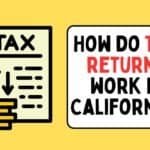
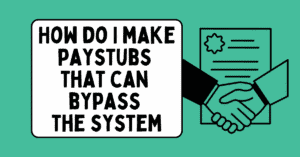

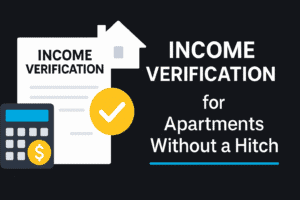
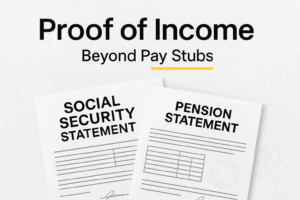
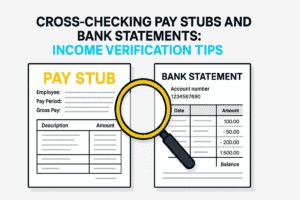
Add comment